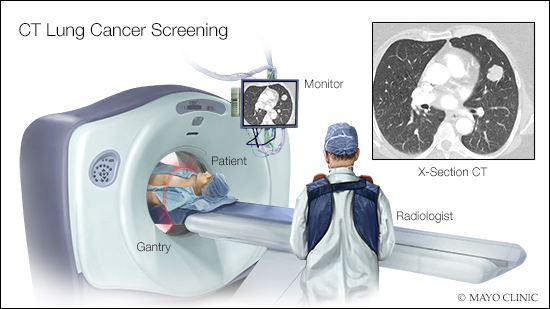-
Living With Cancer: Should you consider lung cancer screening?
 Lung cancer screening
Lung cancer screening
Lung cancer screening is a process that's used to detect the presence of lung cancer in otherwise healthy people with a high risk of lung cancer. The goal of lung cancer screening is to detect lung cancer at a very early stage — when it's more likely to be cured. By the time lung cancer signs and symptoms develop, the cancer is usually too advanced for curative treatment. Studies show lung cancer screening reduces the risk of dying of lung cancer. Should you consider lung cancer screening? Here's what you need to know.
Infographic: Stomach cancer
Did you know that while the rates of stomach cancer have been declining for decades, until the late 1930s, stomach cancer was the leading cause of cancer death in the U.S.? Did you know that most often symptoms of stomach cancer don't appear until the disease is advanced? Do you know the four lifestyle changes that can reduce your risk of stomach cancer? Learn more in this stomach cancer infographic.
Cancer pain: Relief is possible
Cancer pain takes many forms. It can be dull, achy, sharp or burning. It can be constant, intermittent, mild, moderate or severe. How much pain you feel depends on a number of factors, including the type of cancer you have, how advanced it is, where it's situated and your pain tolerance. Controlling your pain is essential to your treatment. Dr. Timothy Moynihan, an emeritus Mayo Clinic oncologist, offers some insight into cancer pain, why people might not get the pain treatment they need and what they can do about it.







